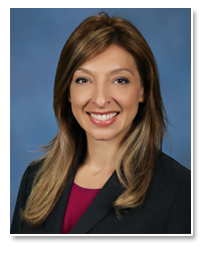Florida voters could be asked next year whether the state should allow entities other than school districts to oversee charter schools.
Right now, Florida is one of several states where local school boards, and with narrow exceptions, only school boards, can authorize charters.
Courts have ruled the state constitution gives school districts near-exclusive authority over public schools, including charters. That creates a barrier to statewide boards, university charter school authorizers or other non-district entities.
 Erika Donalds, a member of the state’s Constitution Revision Commission, has filed a proposal that would allow multiple charter school authorizers in addition to districts.
Erika Donalds, a member of the state’s Constitution Revision Commission, has filed a proposal that would allow multiple charter school authorizers in addition to districts.
And the commission’s education panel has begun to look at charter school authorizing.
Donalds, who helped start a charter school and now sits on the Collier County School Board, cited an article about Lake County School Board members reluctantly approving a charter application. School board members’ comments, she said, highlight “the difficulty that charter school operators have going to a reluctant, or sometimes even hostile, district.”
Authorizers’ job goes beyond green-lighting applications, she said.
They need to examine school proposals, advise would-be charters on how they can improve, keep track of charter schools’ performance after they open and make sure they serve children well. They often help charter schools navigate legal or logistical issues, from federal funding and state testing to lunch programs. But hostile districts might neglect those parts of their authorizing duties.
When authorizers act like their only job is saying yes or no to charter applications, she said, “that’s when we see quality diminish.”
“We want to make sure that students have the highest-quality options — not just a lot of choices, but quality choices,” she said. “I think that’s kind of where the conversation of school choice in Florida is going right now and needs to go.”
Bill Jones, the principal of an established charter school in Manatee County, said districts operate the vast majority of Florida’s public schools. If they’re the only ones deciding whether charter schools can open, that’s “a lot like McDonald’s telling Burger King where to put their franchises.”
“If you were a school district, why would you want to authorize charter schools?” he said, presenting for the Florida Consortium of Public Charter Schools. “They’re going to compete with you.”
At the same time, he said, authorizing is hard work. Roughly two-thirds of the state’s 67 districts have at least one charter school. But the largest, Miami-Dade, has more than a hundred. Some small districts have just one. So while Miami-Dade Public Schools have an office of full-time staff working with charter schools, other districts have staff with other duties who juggle charter school issues on the side.
That’s especially true in rural counties, Jones said.
“For them to be the sole authorizer is often very burdensome — and they’re required to do it,” he said. A statewide board might take that weight off their shoulders.
Commissioner Marva Johnson, who’s also a member of the state Board of Education, said Jones’ Burger King analogy highlights the current system’s tensions. At the same time, she said, the fast-food comparison elides the fact that charter schools are public schools.
“McDonald’s and Burger King don’t have 100 percent the same investors,” she said. She added: “What you’re talking about is the public’s tax dollars, and whether it’s smart for me to have tax dollars competing against other tax dollars.”


